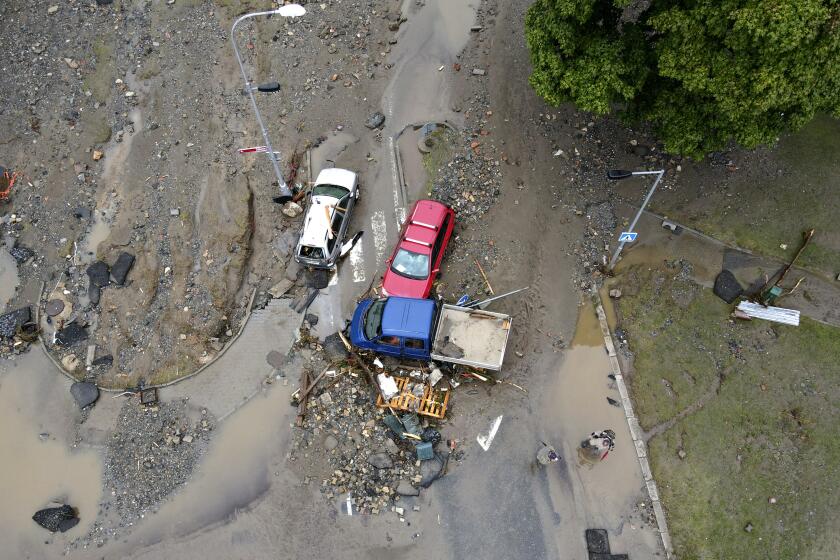300,000 Believed Buried in 263 Mass Graves in Iraq, Officials Say
Saddam Hussein’s government is believed to have buried as many as 300,000 opponents in 263 mass graves that dot the Iraqi landscape, the top human rights official in the U.S.-led occupation administration said Saturday.
Sandy Hodgkinson said the administration has been sending forensic teams to investigate grave sites reported to U.S. officials. So far, about 40 graves have been confirmed.
“We have found mass graves with women and children with bullet holes in their heads,” she said.
President Bush has referred to Iraqi mass graves frequently in recent months, saying they provide evidence that the war to drive Hussein from power was justified. Before the war, the threat from Hussein’s alleged stockpile of weapons of mass destruction was the primary reason Bush cited for the need to invade Iraq; no such weapons have been found.
Some human rights activists have criticized the U.S.-led administration in Iraq for moving too slowly to protect grave sites and begin excavations, and have expressed skepticism that it will ever fully identify who is buried in the mass graves.
“There is just no way -- technologically, financially -- that they’re going to deal with mass graves on this magnitude,” said Susannah Sirkin of Physicians for Human Rights in Boston.
The U.S.-led administration held a workshop Saturday to train dozens of Iraqis to find and protect the mass grave sites. Hodgkinson said the workers would be crucial in protecting the sites from desperate relatives trying to dig for evidence of their missing loved ones.
In the weeks after the U.S.-led war drove Hussein from power, relatives damaged some grave sites, using bulldozers that mangled bodies and scattered papers and clothing that could have been used to identify remains.
The largest mass grave discovered so far, a site near the southern town of Mahaweel believed to hold at least 3,115 bodies, was damaged by relatives searching for remains.
But officials say most of the mass graves haven’t been disturbed.
Iraqi Human Rights Minister Abdul-Basit Turki said that in addition to families’ need to find the bodies of missing relatives, excavating mass graves is important in building criminal cases against members of the former government.
International tribunals handle prosecutions for atrocities in the former Yugoslavia, where tens of thousands of missing are believed buried in mass graves, and Rwanda, in which hundreds of thousands of people slain in a 100-day killing spree in 1994 were buried in communal pits.
But for Iraq, the United States has insisted any trials be conducted by a new Iraqi legal system that is still being developed.
Hodgkinson said most people buried in the mass graves are believed to have been Kurds killed by Hussein’s regime during the 1980s after rebelling against the government, and Shiite Muslims who were killed after an uprising following the 1991 Persian Gulf War.
More to Read
Sign up for Essential California
The most important California stories and recommendations in your inbox every morning.
You may occasionally receive promotional content from the Los Angeles Times.










